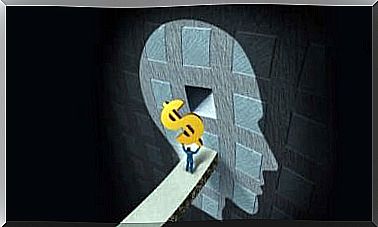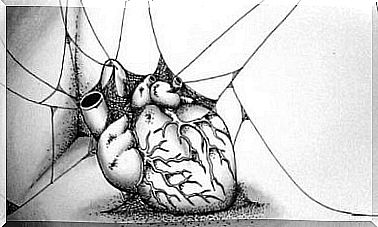Social Needs: Achievement, Power And Union

What rules regulate behavior? Many theorists have talked about human motivations regarding social needs. Researchers have also tried to determine why people behave in certain ways, even when they have many options.
You will find motivational factors that are the cause of any behavior. Some elements cause one behavior to take a certain form and not another. In this regard, you will find social needs among these motivational factors.
Motivating factors are not just goals people want to achieve. In the study of motivation, there are actually two different elements in focus:
- The motivation you can understand as goals and values.
- The motivation you can understand as instincts, needs or desires.
Regarding the latter, many authors have studied the instincts or needs people tend to “hide”. They argue that people can hide them by engaging in certain behaviors.

Needs are primary motivating factors
You can classify needs within a group of primary motivational factors. This means that meeting your needs (including social needs) is a condition of survival.
Murray (1938) understood need as a tendency to act in a certain way. For him, the needs were internal (biological as well as psychological). In his framework, he did not include the environmental impact of behaving in a certain way at a certain time.
In addition, needs also include cognitive, emotional and behavioral processes. These integrate true action lines for the topic. As such, need determines what course of action a person will take.
Murray dedicated much of his theoretical work to the study of needs. His work brought us the Thematic Apperception Test (TAT). With this instrument, experts can evaluate the personal needs of each individual. In the same way, he also created the Personality Research Form (PRF). With this form, Murray tried to evaluate personality based on his needs model.
McClelland’s Social Needs (1987)
David McClelland was a psychologist from the United States who conducted his professional activities at Harvard University and Boston University. He suggested three primary needs that were the root of our thoughts, feelings, and actions. He called them “social needs.”
McClelland defined the three most important needs, social needs. These needs come from the nature of mankind. He claims that humans are social animals and need a process of socialization to develop their abilities.
The needs identified by McClelland are:
- A need for achievement.
- The need for power.
- The need for motivation.
These needs are not universal because they stem from the historical nature of man, but also from their sociocultural context. This is why, although the list of needs may be consistent, it may also change.
The need for achievement
McClelland identifies the need for achievement as the root of human behavior. Due to a person’s need for performance, they tend to want to optimize production. They do not necessarily do this for the material benefits this can provide. Instead, they do it for the satisfaction of having done something good.
Through a task, a person can increase the feeling of self-efficacy. This happens when they consider themselves to be better and more competent.
As such, the need for performance is related to the implementation of something that has been done well. People do this only to satisfy the result they achieve, as well as improve and develop personal abilities.
The need for power
The second need that McClelland identified as the source of behavior for some people is the need for power. This need for power or prestige affects certain people who want to control situations and others. They may also feel their own ability to act.
This need includes searches for status and positions for institutional, social and group control. As such, the characteristics of these people are associated with power, control and domination.
In the same way, people with a very strong need for power are also individuals who do not know how to deal with failure. They also have problems with frustration and defeat. The need for power, taken to the extreme, may be related to arterial problems, stress and other diseases. As such, when a person’s need for power is great, it is important that they use their sense of responsibility.
The need for connection: To feel that you are loved
The last of the social needs McClelland studied is the need for attachment. This seems to be the clearest need. This is probably also what most people share.
Based on the need for connection, people want to maintain emotional and social relationships with an individual or a group.
While this may seem obvious, it is not a bad idea to explain how socializing is the motivation for all kinds of things. It motivates the development of important skills or abilities, as well as everything from language to empathy.
As such, people try to make themselves attractive to others because of this need. They want others to accept them and include them in their groups. The need for connection illustrates how people prefer warm relationships to a wide range of people. Thus, they feel part of a group that values them.
The need for intimacy can arise from the need for attachment. In particular, it can be the source of the need for romantic emotional relationships. McAdams defines the need for intimacy as the search for close and loving interactions with others. Researchers observed that this need is stronger in women than men.

Social needs: Are they the only motivating factors?
The social needs we have talked about are not the only ones that motivate human behavior. There are actually many other elements, such as the need for control.
From the perspective of RW White (1959), experts studied how people try to control their environment at all costs. They also claimed that humans try to balance the existing transactions between organism and context.
Deci (2008), on the other hand, believes that man’s most inherent motivation is to train his own abilities. Thus, they need to achieve mastery in different contexts (without achieving external rewards for this).
Finally, people who subscribe to the theory of self-determination believe that human needs arise through learning and the acquisition of resources. These resources should be enough to become independent. This means that people seek challenges and difficulties to practice their skills. Through this, they become more skilled and feel competent when faced with the tasks they set for themselves.
Whatever it may be, it seems clear that many important needs motivate human behavior. Among them the need to feel competent. There is also the need to feel that you are a member of a group and have some control in that group.
It can also be helpful to get to know what motivates a person. It can help to understand, treat and explain difficult behavior.









